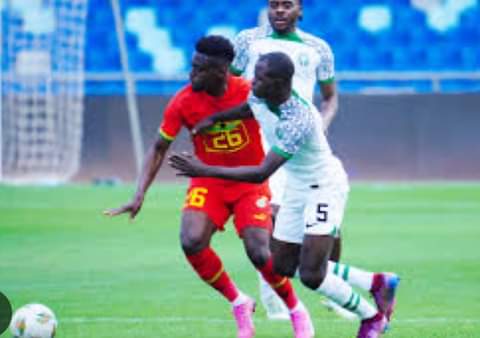The match began with an air of anticipation, as the Black Stars took to the field, confident and poised. However, from the opening whistle, it became evident that something was off. Their passes lacked precision, and their usual fluidity was absent. The midfield, which typically acted as the heartbeat of the team, was in disarray—failing to connect the defense to the attack. Players seemed out of sync, with mistimed runs, wayward long balls, and poor first touches halting any semblance of rhythm.
Instead of building through cohesive team play, they resorted to scrappy, individual efforts. The defense was a chaotic mix of last-ditch tackles and clearances, often finding themselves caught out of position. At times, it looked like they were playing without a plan, resorting to hopeful punts upfield or unnecessary dribbles in dangerous areas. Their frustration grew with every misplaced pass and missed opportunity, and it became clear that they were more focused on trying to outmuscle the opposition rather than outplay them.
Meanwhile, the less-fancied team, while not spectacular, stayed disciplined and compact. They capitalized on the disorganization of the favorites, disrupting their attempts to find any attacking rhythm. Their counters were sharp, though not frequent, and they took advantage of the space left open by the more celebrated Balck Stars team’s incoherent pressing.
Despite their struggles, the Stars had a few chances to win the match, but these were squandered due to poor decision-making in the final third. Shots were either scuffed or sent sailing over the crossbar, adding to their mounting frustration.
In the end, the game ended in a disappointing draw, with the underdogs celebrating as though they’d won, while the supposed favorites slumped off the field, knowing they had underperformed.
The match served as a reminder that reputation and talent alone aren’t enough to guarantee victory.
Source:Mybrytfmonline.com/Kwabena Nyarko Abronoma




















































